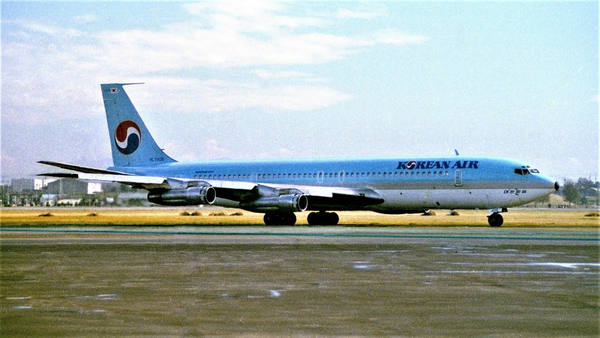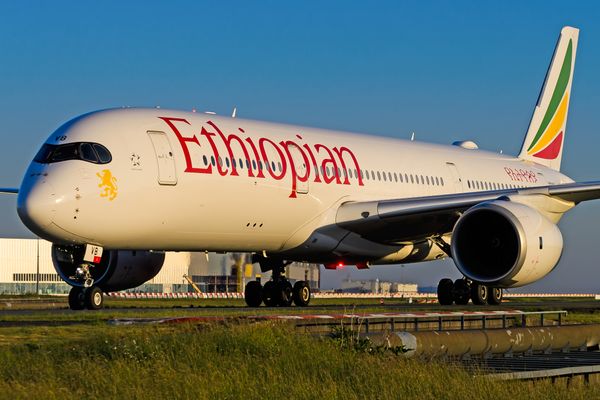Boeing's fourth quarter (Q4) earnings report was volatile, with both financial turbulence and a shocking U-turn on their 2024 forecast. Still reeling from recent safety issues, the aerospace giant released results showing continued financial losses and a decision to ditch their financial predictions for 2024. This move is unprecedented in recent company history and sent shockwaves through the industry, raising questions about Boeing's future and the factors behind this bold decision.

Quarterly Financials
The Q4 2023 results presented a mixed bag of emotions. While revenue inched up 10% year-over-year to $22 billion, the company still reported losses in both GAAP and non-GAAP. This marks the fifth consecutive quarter of financial losses, raising concerns about the company's long-term health.
Boeing's CEO Dave Calhoun said:
"While we report our financial results today, our full focus is on taking comprehensive actions to strengthen quality at Boeing, including listening to input from our 737 employees that do this work every day."
While still in the red, Boeing narrowed its Q4 losses from a hefty $663 million to a more manageable $30 million. However, one-time costs trimmed the adjusted profit further, pushing the company to a 47-cent per share loss, highlighting the need for continued financial improvement.

Operating cash flow surged to $3.5 billion, a sign of financial growth. Additionally, the company generated a healthy $3.1 billion in free cash flow, providing much-needed ammunition for future investments.
The elephant in the room, however, was the 737 MAX. While deliveries of the once-grounded workhorse ramped up, production delays and lingering concerns about its reputation weighed on profits. The impact of the MAX was not solely internal, either. Supply chain disruptions caused by its ongoing production issues rippled across the company, contributing to the sluggish revenue growth.

The Reason Behind the Forecast Suspension
The decision to suspend the 2024 financial forecast resonated louder than the financial losses. Boeing attributed this move to a renewed focus on safety, citing a series of recent quality issues, including a near-catastrophic panel blowout on a 737 MAX in early January. Following the 737 MAX grounding in 2019, this incident emphasized the need for unwavering commitment to safety.
Calhoun also added:
"As we move forward, we will support our customers, work transparently with our regulator, and ensure we complete all actions to earn the confidence of our stakeholders."

These commitments come from the recent spotlight on Boeing for poor safety management and quality control, primarily driven by the insatiable demands of ambitious deadlines and shareholder pressure. Feeling the pressure from intense competition, Boeing embarked on an aggressive strategy of cost-cutting and faster production cycles, which ultimately cultivated a cutthroat environment where prioritizing safety and quality could cost you your career. This toxic culture sacrificed the well-being of its products, leading to a trail of accidents and delays that tarnished the company's reputation and left a human cost in its wake.
But Boeing is moving in a new direction, as Calhoun said:
"Our people on the factory floor know what we must do to improve better than anyone. We should all seek their feedback, understand how to help and always encourage any team member who raises issues that need to be addressed."
He also added, "We will go slow, we will not rush the system and we will take our time to do it right."

The MAX Saga
The 737 MAX, once Boeing's crown jewel, symbolized promise and peril. While its return to service in 2021 marked a significant milestone, the recent incident with Alaska Airlines flight 1282 reignited concerns about the aircraft's safety and production processes.
The MAX's impact on Boeing is multifaceted. The aircraft's reputation remains tarnished while orders are picking up, particularly from airlines like Lufthansa. This shadows future sales and delivery schedules, making accurate financial forecasting difficult.
Boeing faces a delicate balancing act. Prioritizing safety is paramount, but neglecting financial stability can have dire consequences. The company is trying to regain public trust and address production issues to ensure the MAX's long-term success. Simultaneously, it must demonstrate financial progress to investors and maintain market confidence.

Looking Ahead
Boeing's future remains uncertain. The suspension of the forecast reflects the company's own cautious outlook. While the 5-7% revenue growth projection for 2024 offers a glimmer of hope, it's contingent on overcoming production hurdles and restoring public trust.
However, the company's commitment to safety is a positive step in the right direction. Implementing robust quality control measures and addressing concerns, especially those from their engineers and other employees, will be crucial for regaining public confidence and rebuilding the Boeing brand.
Some believe the company is on the right track, emphasizing its focus on safety and a strong order book. Others remain skeptical, pointing to persistent financial losses and the MAX's tarnished reputation. Only time will tell if Boeing can navigate this turbulence and emerge stronger.
GlobalX Secures Rare Authorisation to Operate Intra-Canada Charter Flights » Cities in the Sky: The Future Built on eVTOL Flight » End of an Era: JetBlue's Farewell to the Embraer E190 »
Comments (0)
Add Your Comment
SHARE
TAGS
NEWS Boeing Q4 2023 Quarterly Earnings Finance 737 MAX 9 Boeing 737 MAX 9RECENTLY PUBLISHED
 VIDEO: What It's Like Onboard China's COMAC C919
We flew onboard China Eastern's COMAC C919 to experience China's homegrown narrow-body up close. From seat comfort to cabin layout to noise levels to tech: how does it really compare with the Boeing 737 and Airbus A320? This review puts all three workhorses under the same spotlight.
TRIP REPORTS
READ MORE »
VIDEO: What It's Like Onboard China's COMAC C919
We flew onboard China Eastern's COMAC C919 to experience China's homegrown narrow-body up close. From seat comfort to cabin layout to noise levels to tech: how does it really compare with the Boeing 737 and Airbus A320? This review puts all three workhorses under the same spotlight.
TRIP REPORTS
READ MORE »
 KAL858: The North Korean Bombing that Shocked the World
Among the 99 passengers boarding Korean Air Flight 858 on November 29, 1987, few could imagine their journey would end as one of aviation's darkest mysteries.
STORIES
READ MORE »
KAL858: The North Korean Bombing that Shocked the World
Among the 99 passengers boarding Korean Air Flight 858 on November 29, 1987, few could imagine their journey would end as one of aviation's darkest mysteries.
STORIES
READ MORE »
 Ghost Networks: The Rise, Fall, and Revival of Fifth-Freedom Flights
Fifth-freedom flights — routes where an airline flies between two countries outside its home base — have always lived in aviation's twilight zone. We chart their rise, their near-disappearance, and the surprising markets where they still thrive today. Then we take you on board a special Seoul-Tokyo fifth-freedom flight to show how the experience stacks up against a typical regional carrier.
TRIP REPORTS
READ MORE »
Ghost Networks: The Rise, Fall, and Revival of Fifth-Freedom Flights
Fifth-freedom flights — routes where an airline flies between two countries outside its home base — have always lived in aviation's twilight zone. We chart their rise, their near-disappearance, and the surprising markets where they still thrive today. Then we take you on board a special Seoul-Tokyo fifth-freedom flight to show how the experience stacks up against a typical regional carrier.
TRIP REPORTS
READ MORE »



